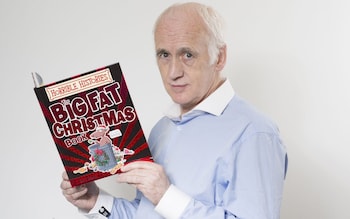Capital gains tax rises under Labour would disproportionately hit older men selling their businesses, analysis shows.
Nearly three quarters of the people who benefit from capital gains in Britain are aged over 50, according to analysis of tax returns by researchers at the University of Warwick and the London School of Economics.
Of all taxable gains covered by the levy, 68pc come from the sale or liquidation of businesses.
Any capital gains tax rise would also be a disproportionate blow to men, who receive 74pc of the UK’s capital gains by value.
The analysis comes amid speculation that Labour will raise capital gains tax to fund its plans.
The party has ruled out raising income tax, National Insurance, VAT and corporation tax, which combined make up around three quarters of the Treasury’s tax take, but has not ruled out an increase in capital gains.
Arun Advani, associate professor at the University of Warwick, warned that increasing the levy could make Britain’s economy less dynamic by discouraging business owners from selling.
He said: “The vast majority of gains are coming from private business assets. The downside of raising rates is that you encourage people to either leave and liquidate or hold until death, even when they don’t really want the business anymore, to get the gains wiped out.
“By encouraging people to hold until death, even when they might want to sell, raising rates would be bad for business dynamism.”
Capital gains are profits made on the sale of most personal assets, such as shares or property, that are worth £6,000 or more.
Last month The Guardian reported that Labour has been drawing up plans to raise money for public services through a package of wealth taxes. Proposals on the table included a capital gains tax rise, which could reportedly bring in an extra £8bn for the Treasury.
Labour has said that its priority will be boosting growth rather than raising taxes. But analysts have warned that the cost pressures on the new government will almost certainly necessitate tax rises.
Paul Johnson, the director of the Institute for Fiscal Studies, has said it would be a “considerable surprise” if a new Labour government did not increase taxes over the next five years.
Investment bank Citi last week said that higher taxes under Labour were “probably unavoidable”. It expects a package of tax increases in the autumn Budget totalling around £15bn.
Capital gains tax rises will be one of the few options on the table for new Chancellor Rachel Reeves.
On the campaign trail Prime Minister Keir Starmer ruled out introducing capital gains tax on the sale of people’s primary homes, an asset that has an exemption, but went no further.
In a 2018 pamphlet, Ms Reeves called for capital gains tax rates to be brought in line with income tax rates.
Currently, a higher rate taxpayer would pay capital gains at 20pc on the sale of unlisted shares, compared to the 40pc tax rate on their income.
The University of Warwick and LSE analysis was based on anonymised tax returns between 2015 and 2019 and shows total taxable capital gains, rather than capital gains tax paid.
Disclaimer: The copyright of this article belongs to the original author. Reposting this article is solely for the purpose of information dissemination and does not constitute any investment advice. If there is any infringement, please contact us immediately. We will make corrections or deletions as necessary. Thank you.



